Elula co-founder Sarah Russell on how taking a chance has paid off
She quit her big bank job and tapped mentor Ian Narev to bankroll a start-up called Elula. Because, what’s the worst that could happen?
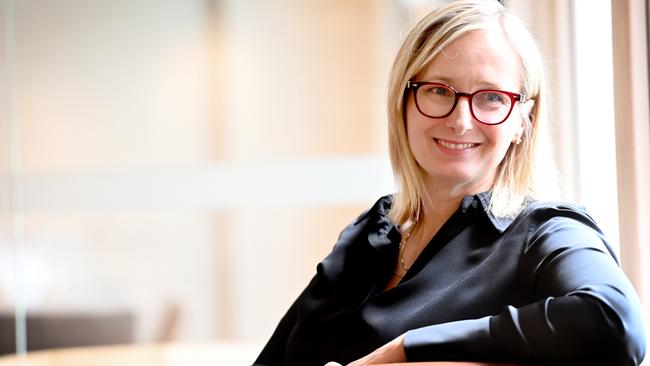
It is known as the “guilt gene”, the so-called trait famously highlighted in former Facebook boss Sheryl Sandberg’s book “Lean In: Women, Work, and the Will to Lead.”
Sarah Russell was battling with it big time during the second half of her decade-long career working at the Sydney head office of the Commonwealth Bank.
“I always used to put a lot of pressure on myself in the corporate world. I hated leaving the office early when I still had people in my team that were busy working. I hated leaving the office to go and collect my boys from daycare or whatever,” she now says.
“It was all artificial in my head, no one would have even noticed that I was leaving or was worried about it. But I worried about it.”
She’d spent her early years at CBA working in the corporate strategy team, which from May 2007 was led by Ian Narev.
This included a 6 month stint in Perth in 2008 working on the bank’s $2.1 billion acquisition of Bankwest that was spear-headed by Narev, who would three years later become the bank’s chief executive.
Eventually Russell moved closer to the front line in operations and led a team of 80 staff focussed on analytics that provided cutting-edge data science and machine learning initiatives to the bank.
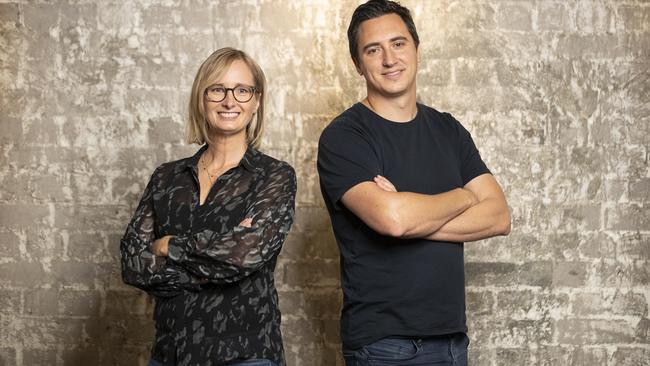
By early 2017, she’d had enough of big bank life and the guilt gene. She’d struck up a friendship with Josh Shipman, then CBA’s head of automation and robotics operations, who had vowed the role would be his last corporate gig.
Together they leapt into the unknown to start their own Artificial Intelligence (AI) and Machine Learning financial services business. They called it Elula.
“We could see there was an opportunity while we were at CBA. But trying to start a business while you’ve got a big full time job and at the time I had a six year old and a four year old, it was impossible. There was just no spare time in the day. So Josh and I had this conversation: ‘If we are serious about this, we just need to go and do it, leave the corporate world, jump in and put everything into making this a success.’ Which is what we did,” she says.
She thought carefully about the risks, especially for her boys. Thankfully her youngest was just starting school.
“I guess there was a strong urge around, ‘If I don’t do this now and give it a go, I’ll never do it. I didn’t want to look back and regret not trying. I just kept saying, ‘What’s the worst that could happen’?”
Risk and reward
Elula uses AI and machine learning technology to help predict when bank customers are at risk of shifting to a competitor or when banks should proactively engage with them on new products.
The firm, which counts big banks, Suncorp, AMP, credit unions and other mutuals and non-bank lenders as customers, claims it can reduce customer churn in a mortgage book by 50 to 60 per cent by drawing on 20,000 data points around reasons a customer may want to leave their bank.
“At CBA there was a lot of talk about big data, there was a lot of talk about machine learning and AI and there was a lot of talk about people wanting to be data driven. But there seemed to be a real gap in the market for very practical, tangible ways to deliver outcomes to customers using information. That really became the catalyst of Elula,” she says.
“Customer retention is something for which there is absolute appetite in the market. It is a really big issue and hard to solve. No one anywhere has really cracked it.”
In May this year the online property settlements group PEXA took a 25 percent stake in Elula, delivering the group a significant capital injection.
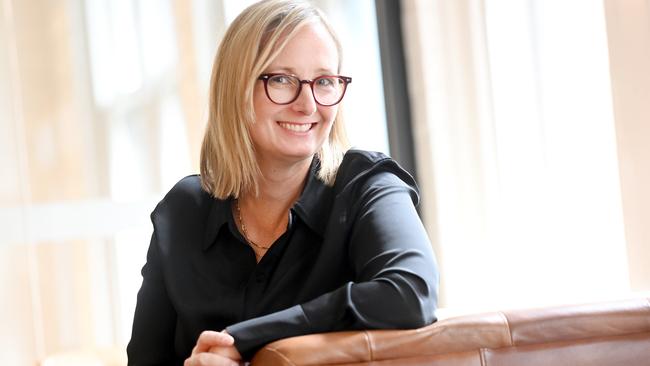
PEXA was attracted by two Elula products. The first, known as Sticky, is designed to predict which home loan customers are likely to refinance or sell their property.
The other, called Nudge, predicts which financial institution customers are likely to take more products and services from.
With PEXA’s support, the Elula strategy now includes rolling out new products in New Zealand, Canada and the UK.
In August the Hinckley & Rugby Building Society and Shawbrook Bank became the first lenders in the UK to commence transacting mortgage cases via the PEXA platform.
“The UK banking market is substantially bigger than the Australian market for the number of potential banking customers and importantly, it has a regulatory environment that is similar to ours. So we definitely see that as an area that we would like to move into,” Russell says.
Elula now has 30 employees and Russell says it remains on track to break even within the next three years. In the 12 months to July 2022, more than 1 million Australians refinanced their home loan.
“Refinance these days is a hot topic, everyone is moving their home loan. Covid really has been, I hate to say it, in some ways brilliant for us from a market timing point of view. There was a drastic change in consumer behaviour at that point, an almost a doubling of the level of churn that was happening in the market,” she says.
“We’ve managed to grow out the business and we are working with a number of banks now in that space,” she says.
Hometown advantage
They might both hail from New Zealand and be passionate fans of the All Blacks rugby union team, yet Russell had never met Ian Narev before she joined CBA in 2005.
She’d previously spent a year and a half as strategy manager at the CBA-owned ASB bank in Auckland, Narev’s home town, but she actually grew up in Christchurch.
Living and working abroad has long been a “rite of passage” for young New Zealanders so after graduating from the University of Canterbury with Commerce Masters degree at the age of 23, Russell followed the ritual when she moved to Sydney just after the 2000 Olympics to work for AMP’s banking arm.
Two years later Andrew Mohl took over from Paul Batchelor as chief executive of AMP, and set about what became a five-year turnaround of the then loss-making group.
Russell remembers being impressed by Mohl’s willingness to bypass bureaucracy to get answers.
“He would just email me questions about information he wanted. He wasn’t interested in going through a hierarchy,” she recalls.
In 2004 she travelled around Australia for a few months before in July continuing her Kiwi rite of passage by moving to London, where she worked for six months as an internal audit finance manager at Pan African bank Old Mutual
In April 2005 she moved back to Auckland to work with ASB and then moved to Sydney with CBA.
More than a decade later when Elula was established, Russell and Josh Shipman made the deliberate decision to “bootstrap” the business and not take any external funding for at least the first year.
After 18 months they conducted their first capital raising, tapping only high net worth individuals, not venture capital (VC) or private equity firms.
One of them was Narev.
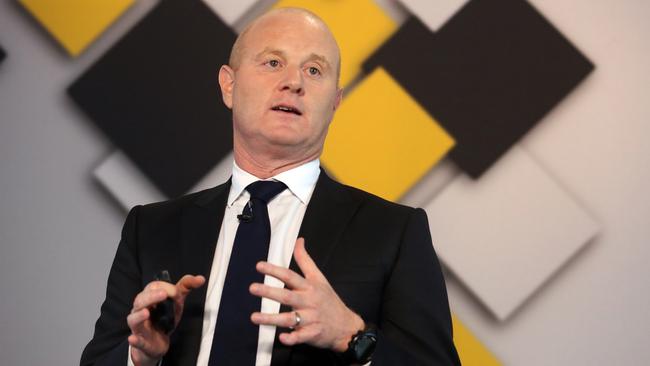
“When we were having the conversations with him about coming in and investing with us and some of the challenges, he was like, ‘Oh, you are never going to be able to do this particular idea.’ But we were like ‘We’re going to go for it anyway’. Then we managed to pull it off, so that is always nice, looking back,” Russell says.
She describes Narev, now CEO of online employment powerhouse SEEK, as an “exceptionally smart person” who “asks really challenging questions”.
“He can just see through all the noise and go to the heart of a problem or a question. But we’ve always had a great relationship with all the investors. They are always calm, conversational discussions rather than them trying to grill us,” she says.
She says Elula decided to bring on only high net worth individuals and family offices as initial investors “to surround ourselves with some people that had their own businesses, had experienced successes and failures and had scars on their back”.
“Many knew what it took and how hard it was to get a business off the ground,” she says.
In addition to Narev, others to join the raising included billionaire Gretel Packer and Arnold Bloch Leibler partner Paul Rubenstein. Narev and Rubenstein are now advisors to Elula.
“Ian came in through the first fund round and if we’d gone down the VC route, he would not have had that opportunity. He and other investors have been a tremendous support. I’ve been able to pick up the phone and bounce ideas around with people who have been there, done that. It has been exceptionally valuable for us,” Russell says.
“We also felt there was a bit more flexibility with high net worth investors and that we would have more flexibility for the business to evolve on a path with customers, to pivot.”
Tense moments
Despite his apparent early reservations about their idea, Narev says Russell and Shipman have
together built an innovative and successful business.
“Elula quickly understood the potential for applying AI to customer retention, which has been an intractable problem for banks and other organisations over time. It now has five years of experience in this very specialised area, and has proven its capability. Its customers are seeing quantifiable value creation,” he says.
He remembers first meeting Russell 15 years ago, when she was identified as a high potential member of the strategy team at CBA.
“I am not at all surprised that she has gone on to achieve this level of success. She is smart, determined and collaborative. She and Josh complement each other’s skills very effectively,” he adds.
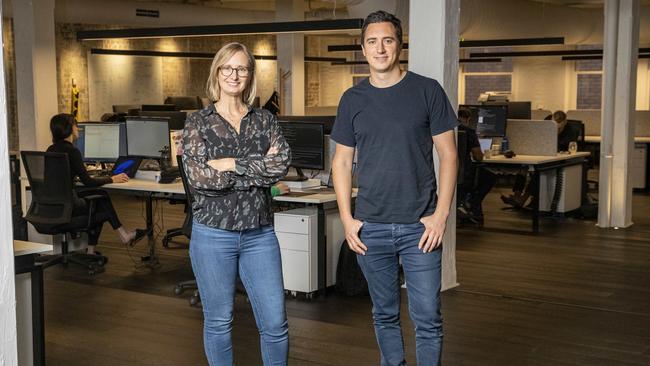
Russell admits there have been some tense moments with her co-founder as they have built the business, but she says they have always been aligned in what they wanted to achieve.
“We tend to have very different paths to get to those outcomes. But the benefit of that is you start to see all of these other problems and opportunities that the other person is seeing that you are not. I would say that anyone who starts a business and founds it by themselves is exceptional, because it is not an easy journey” she says.
“There is a lot of pressure and challenges. Some of that we put on ourselves as well, so it’s really nice to have someone else there to lean on when you are having a shitty day.”
They are friends, as are their children who are similar ages. Russell’s boys are now 10 and 12.
Every day she says she still rides a roller coaster of emotions at work. But she has never looked back.
“Every time that happens, I always remember and remind myself of the reasons I left CBA,” she says,
“I knew I always held back a bit in the corporate world and played it safe. I really wanted to challenge myself. You can’t do that if you are playing in your comfort zone.”



